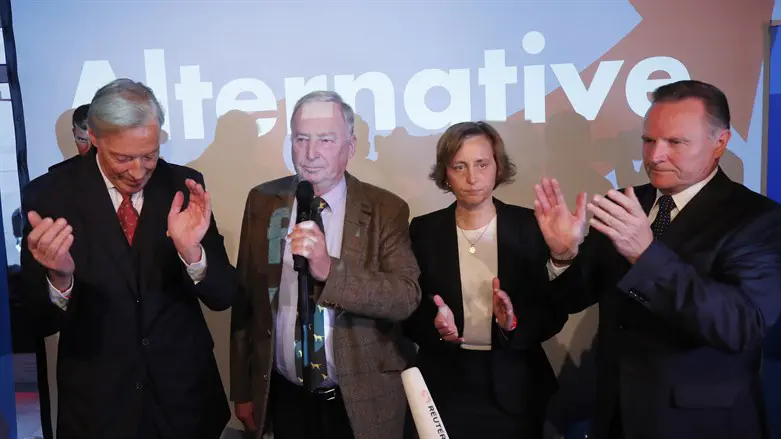
The far-right Alternative for Germany (AfD) party announced Tuesday its decision to dissolve and replace its youth wing, the Junge Alternative ("Young Alternative"), which has been classified as an extremist group by German intelligence services, AFP reported.
AfD, which is currently polling second ahead of a legislative election expected in February, plans to amend its statutes to replace the Junge Alternative, according to the report.
Members of the party’s youth wing, mostly aged 16 to 30, have faced accusations of using racist chants and associating with neo-Nazi groups.
In April 2023, Germany's Federal Office for the Protection of the Constitution (BfV) designated the Junge Alternative as an extremist organization, labeling it xenophobic and warning it could adopt "non-peaceful behavior" toward people perceived as foreign.
The Junge Alternative is considered more radical than the AfD itself. The move to replace it comes as the party attempts to broaden its image beyond its anti-immigration and anti-Islam platform.
The Junge Alternative currently has about 2,400 members, only half of whom are also members of the AfD, noted the AFP report.
AfD, which was formed in 2013, entered Germany’s national parliament with 12.6% of the vote in 2017. The party has a history of controversial statements, particularly surrounding the Holocaust. The party’s leader, Björn Höcke, caused a firestorm in February of 2017 when he suggested that Germany should end its decades-long tradition of acknowledging and atoning for its Nazi past.
AfD chairman Alexander Gauland in 2018 described the Nazi period as a mere "speck of bird poo in over 1,000 years of successful German history".
He had previously asserted, however, that Jews should not fear the strong election showing by AfD and indicated that he was ready to meet with German Jewish leaders “at any time.”
Germany is heading into elections in late February following the collapse of Chancellor Olaf Scholz's three-party coalition last month.
The AfD is polling around 19 percent, placing it second behind the conservative CDU/CSU bloc, which stands at roughly 33 percent.
In September, the AfD made history by becoming the first far-right party in Germany's post-World War II era to win a state election, securing victory in Thuringia, a former East German region.
